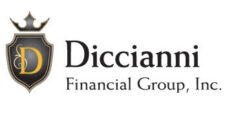Whether you are buying your first home or another home, the process of buying a house is one of
the most important purchases and investments you will ever make. It is important to assess the neighborhood that you want to live in as well as the town, type of home and financing available for your unique situation.
Home Ownership-The Advantages
When you rent a home or apartment, each month your rent payment is money that is “out the door”. On the other hand, a mortgage payment on you own home increases you equity (which is the amount you own) with each payment.
A mortgage is a loan from a bank or mortgage company, to someone buying real estate. A mortgage is considered a secured loan because the property is used as collateral to back the loan. If the borrower does not pay the mortgage payments in a timely manner, the lender can take the real estate to pay off the loan.
In the initial few years of paying your mortgage, most of the mortgage payment monies are allocated for paying off the interest on the loan, and a small amount goes toward the principal. But over a period of a few years, as the debt goes down, more and more of the payment goes to reducing the principal or the debt.
As you pay off your mortgage, your equity, or the value that the property has, increases. The equity can also increase at the same time if the property value increases, thereby increasing your wealth. Oftentimes mortgage companies will assess the borrower PMI (Private Mortgage Insurance). This insurance is calculated as part of your mortgage payments if you put less than 20% down on your home. A word of caution, you will continue to be charged PMI insurance even if the value of your home increases, it is important to call the lender and have the home assessed to get PMI insurance payments taken off of your mortgage payments when you have 20% or more of equity. This can save you hundreds maybe thousands of dollars over the course of your loan.
Tax Advantages of Home Ownership
The U.S. Tax Codes are designed to promote home ownership, which make owning your own home a major advantage over renting. The interest you pay on your mortgage may be deducted from your gross income in determining your income tax. The property taxes on you home are also tax deductible and reduce you federal taxes. Because of these tax savings, many people can afford to pay a somewhat larger monthly mortgage payment than they can afford in rent. Home ownership has other tax advantages:
- Generally there is no capital gains event when you sell one home and buy another
- If you sell your primary residence after at least two years of living in the home, there is an exclusion of the capital gains up to $250,000 per individual, ($500,000 for a married couple).
- If the property is raw land the exclusion does not apply and the tax rate is 10-15% depending on your tax rate.
Affording a Home
How much house can you afford seems to be the greatest concern of every homebuyer. A bank or mortgage company will look at the following factors to determine what you can actually afford:
- Current monthly income of the applicants
- Expected future monthly income
- The down payment
- Current mortgage interest rates
- The price of the home
- Other debt obligations that you may have
- The number of years of the mortgage.
Generally, mortgage lenders look at gross monthly income in relation to the monthly housing payment, which includes the mortgage payment, property taxes, and homeowner’s insurance. The general rule of thumb states that the monthly housing payment should not exceed 27% of gross monthly income with a cap of 34% for all debts including the mortgage. An example of this would be: gross yearly salary of $48,000 per year or $4,000 per month should have a monthly payment of $1080 ($4000 x .27).
The Down Payment
The down payment is the amount of money that you pay at the closing, which is the time of sale from your own funds. The rest of the money for the house is loaned to you-the mortgage. If the down payment is less than 20% then PMI insurance comes into play. PMI protects the lender in case you default on the loan and the value or equity of the home has not increased.
It is best to get pre-approved for your mortgage prior to looking for a home. This way you can figure out what you can afford to pay for a home. There are many Internet sites, which have loan calculators to help you determine exactly what you can afford.
Types of Mortgages
Fixed rate mortgages have a fixed or never changing interest rate for the life of the loan. These mortgages are best in an environment where the rates are increasing or for a homebuyer who plans to stay in their residence for many years. It is easier to budget your money knowing that the mortgage amount is the same from month to month.
Adjustable rate mortgages or ARM has an interest rate that adjusts periodically, according to the rise and fall of the interest rates. Monthly payments can vary either yearly or quarterly. The initial rate on an ARM is lower than the rate on a fixed rate mortgage and they have a “cap limit” on the interest and a maximum change per year. Some ARMs allow you to convert to a fixed rate mortgage after a certain period of time.
Balloon mortgages are mortgages that have a balloon or large payment at the end of a period of time, usually 5-7 years. The interest rates on balloon mortgages are normally 3/8-3/4% less than a fixed mortgage and are popular with homeowners who plan on moving in 5-7 years from the home. If you decide to stay than you will have to pay the balance on the mortgage or get another mortgage to pay off the first mortgage.
Home buying requires careful planning and consideration before you begin to look for you new home. Good preparation will prevent financial problems and make your experience a happy one.
Contact us to talk about home ownership and how it fits into your overall plan.

